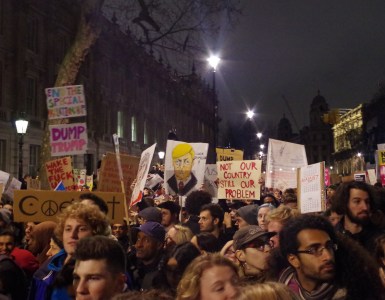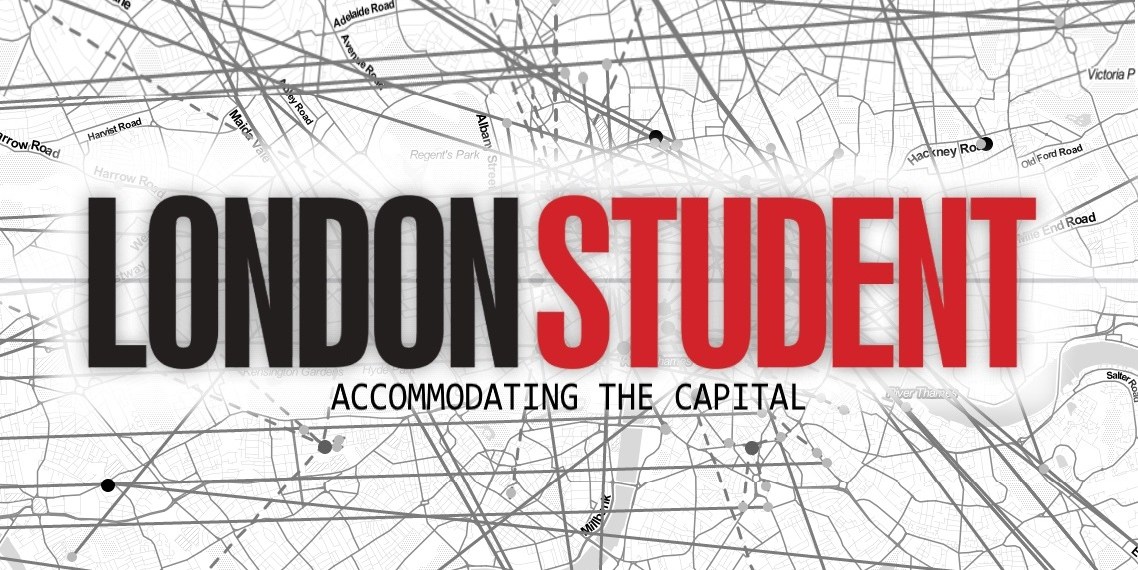Many of us who earn low wages and are entrapped within a credit economy may well be celebrating the advent of a postcapitalist society, but Paul Mason believes that whilst a transitional phase from capitalism to postcapitalism may be inevitable - he cannot put a date on it.
Given Rosa Luxemburg prematurely declared capitalism’s demise in 1914, 101 years ago, proclaiming that “capitalism wants to turn the whole world into a smoking battlefield,” we may have some time left to wait.
On Wednesday night the economist, writer and Channel 4 journalist Paul Mason broadly outlined his new book Postcapitalism: a guide to our future in the Old Building at LSE, to a room of around 150 attendees.
Mason clearly sees the world through the prism of economic stages. Like many of his influences, Marx and the early Soviets like Preobrazhensky, he believes that the contradictions of our current system will lead to a fundamental reconfiguring of our economy. He argues in his book that changes in information technology (IT) will eventually precipitate fundamental economic change.
Mason extended 1991 Nobel prizewinner Herbert Simon’s ‘Martian’ metaphor, and employed it as an elite motif throughout his lecture. He presented a diagram where “a bunch of organisations, represented by green blobs, a set of market transactions, represented by red lines, and a set of blue lines — within the green blobs — representing power structures” levitated somewhat bizarrely, emblazoned across the screen behind him.
In reality, credit cannot expand forever against a static or falling income base; the Asian Crisis, dot com bubble and Lehman Brothers illustrate that. Mason warned forebodingly: “Whenever anyone who knows nothing of economics is on the phone using their credit card as a speculative asset [..] then another crash is inevitable: but I don’t know when.”
Despite being ideological polar opposites, organizations were “the dominant feature of the landscape,” from Soviet Russia to America. Human’s had no place in this diagram as they spend more time in organisations than markets - and this is part of the reason that “large green areas [are] interconnected by red lines” on this pre-1991 outline.
“This book is obsessed with obscure soviet economists,” said one Tory critic. The reason for Mason’s soviet preoccupation, however, is because they too grappled with the transitional economies - market to non-market - that went disastrously wrong.
Upon widespread privatisation and outsourcing a lot more people are “trading as businesses,” and “spending a lot more of their economic time individually consuming both financial services and products.” Similarly, workers are increasingly dependent on credit than wages; whilst the economy creates forms of economic activity where there are none.
This meant that after 2000 the red on this map began to eclipse the green, as the world’s monetary supply went from $27tn to $70tn. The global economy hollowed out as banks printed money far in excess of their holdings - far in excess as in far more in excess than usual.
These big blobs (or states) have adopted the survival tactic of expanding the money supply even more by printing $12tn between then and now. “If you keep exploding credit, we may as well go home,” says Mason, clearly not quantitative easing’s greatest proponent.
His critique of so-called neoliberalism extended to citing the stagnation of the median average wage in the US since the advent of a doctrine under Reagan that blurred the distinction between work and leisure. Work time was fundamentally delinked from wages, with workforces working to targets not sequentials. For this he blamed IT - which has turned the price mechanism on its head.
“There is another way but you have to participate in the credit system: credit cards, payday loans and student loans have saved the day,” he proclaimed solemnly before the quizzical cherubs at sin front of him had the chance to realise he was being sarcastic before.
He has a propensity to wax lyrical and as he took a moment to dramatically peruse the audience, of whom he suggested the majority were of student age. He said – in a manner akin to when Hagrid told Harry he was a wizard – how it’s “amazing to think of the story of your generation. You’ve accumulated greater power over reality than any other.”
He had perhaps tailored the idiosyncrasies of his speech for his audience as he invoked Marijuana punch lines between Diamonds are Forever references: the song, not the movie. Although one of the more boisterous attendees, who had asked a very pertinent question about the role of renewable energy in a postcapitalist society, did loudly brand him a ‘grandad’ after he made a fairly grandadish reference to hip hop in light of the questioner’s bearded nature.
Mason rarely dove into the realms of economic jargon - harking back to the Keynesian era with a slew of anecdotes and metaphors, and searing criticisms of neoliberalism delivered in more or less layman’s terms. At times he was incredibly blunt, refusing to skirt around any issues in the manner a man who works for someone besides Channel 4 may: “Governments care more about banks than climate energy or steel work jobs,” he said damningly.
‘[Neoliberalism] does not facilitate the third industrial revolution that we should be undergoing. In fact, what it does is topples countries and takes a chunk of the welfare state.” This phenomena means that “Bailouts are over and bail in’s are in because states are overwhelmed with debt’”
Marx once said something along the lines of: if you have a society based on wage, but you reduce the work hours, then you will blow the foundations of capitalism sky high. But Mason stressed he rather favours a gradual transition from capitalism into postcapitalism. No eruption.
And IT has provided us with rational grounds in which the “corrosion of the price mechanism, the blurring work and life, delinking hours of work from wages, the replacement of hierarchies with networks and the triggering of an upsurge in collaboration, non-managed work and non-market exchange [..] lays the basis for a transition to postcapitalism.”
He actually makes many similar points to Russell Brand, but without mentioning a revolution or pruning his chest hair.
Returning to the Martian metaphor he said how “reviving the labour theory of value [is essential] because it is the only system that works out how it corrodes the price mechanism.”
The talk ended with questions on a range of topics which Mason answered off-the-cuff. His answers once again illustrated his progressive credentials, as he declared that the NHS is a victim of its own success. It’s created a big non-market area of the world with whom successive governments have attempted to impose red lines upon.
Now, however, neoliberalism’s response to what remains of public services is to let them wither away so to become inefficient. Perhaps the way successive UK governments have sought to do this is by cutting frontline services while swelling the middle management sector with what David Graeber may refer to as “bullshit jobs” in the sense they probably needn’t exist.
“Can post-capitalism come about without state intervention?” one audience member asked. Well it’s bad news for the state and the traditional left, Mason says. He envisages the postcapitalist state as one that has withered economically rather than politically
For those of us who haven’t yet read his book, I wonder if it will provide any further detail of the intricacies of the post- capitalist society, such as “the basic income paid for out of taxation as a one-time subsidy for the rapid automation of work, the re-regulation of finance and the aggressive clearance of a space for commons-based production” that he briefly mentioned.
Tonight he focussed more on outlining the contradictions that will lead to capitalism’s demise, rather than outlining any sort of economic vision, so to speak. He then closed with a terrible joke about being bitten upon the buttocks like you would in an American gangster film ‘on the ass’.
Ironically, it was the snap Greek election in September that meant he had to postpone his lecture until tonight. Greece, the epicentre of neoliberal dissent, symbolises modern capitalism’s failings, predatory impulses and insistence upon the withering away of the public sector.
As one attendee said it as they left: “Whether he’s got it right in its entirety is irrelevant, he’s certainly on the crux of something.” Whether we, the credit-indebted generation who has greater control over reality than any other, are on the precipice of a new economic order is historically proven to be an inevitability. The only question is when postcapitalism will set us free from the tech monopolies, governments and multinationals of today.









[…] Paul Mason at LSE: Vision for a postcapitalist society Many of us who earn low wages and are entrapped within a credit economy may well be celebrating the advent of a postcapitalist society. Paul Mason believes that whilst a transitional phase from capitalism to postcapitalism may be inevitable – he … Read more on London Student […]